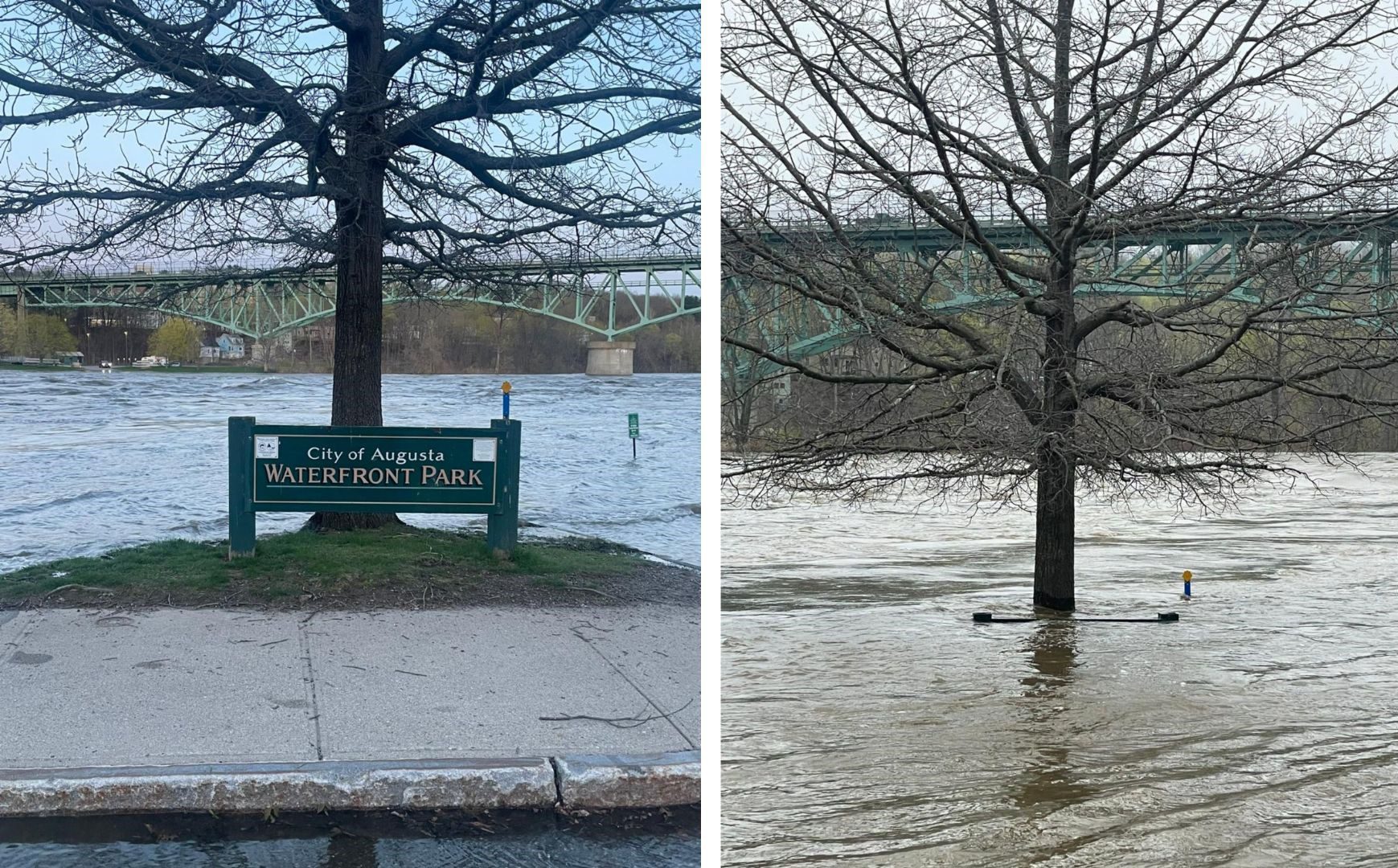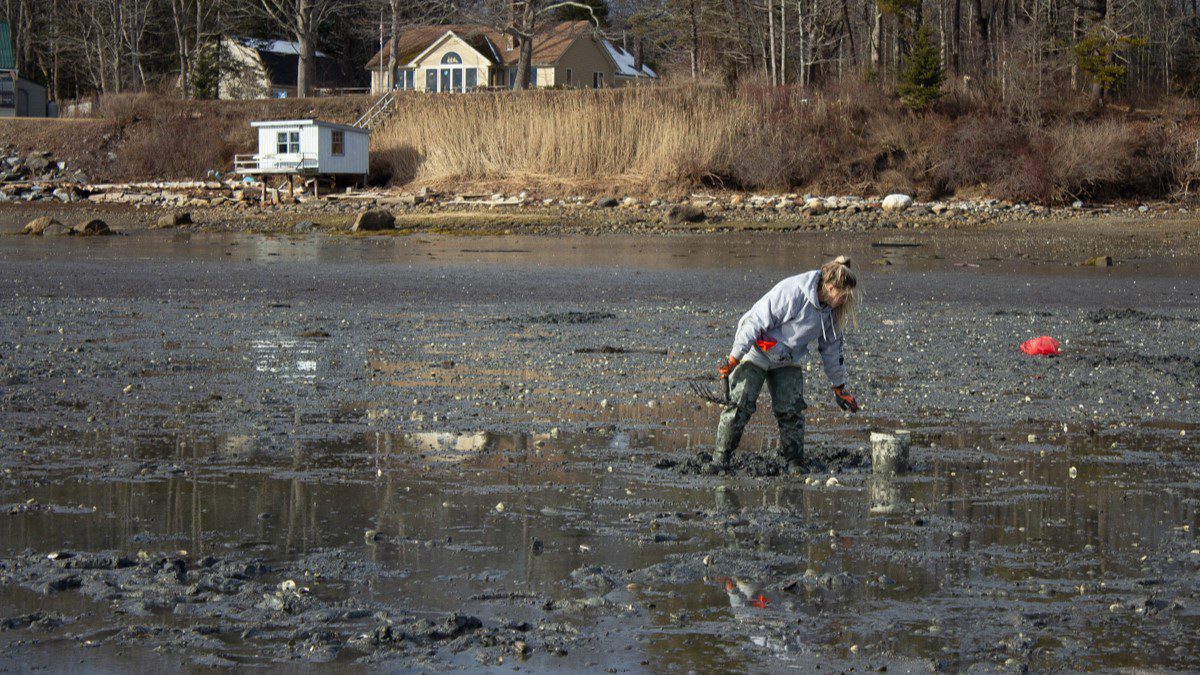2023 was a remarkable year of reporting for The Maine Monitor. We published roughly 300 original pieces of content, earned recognition for our reporting 55 times from around New England and the country, and achieved 1 million pageviews, the latter a first for our newsroom.
Among the hundreds of stories we’ve published are an investigation with ProPublica into Maine’s assisted living facilities, a series about Maine’s strong dependence on heating oil, an investigation into the state’s probate court and guardianship system, and reporting on how Maine will use funds from the opioid settlements. Mixed in are story collaborations with the Boston Globe, TIME, and the Bangor Daily News.
As we wrap up 2023, here are 10 stories we published this year that you may have missed:
Climate change’s impacts on river flooding
Research shows climate change is causing rainfall to increase in quantity and intensity across the country, and especially in the Northeast, Annie Ropeik reported in March.
Increased temperatures cause more moisture in the air, but that’s not the only factor that drives spring river flooding. Maine’s shifting seasonal timing and snow patterns also play a role. In fact, per the 2018 National Climate Assessment, an increasing pattern of earlier snowmelt and a shorter snow season may lead to lower spring stream flows, which could help mitigate flooding.

Foreign-trained health professionals
Physicians who have emigrated to Maine have a winding, expensive path to reclaiming positions they held elsewhere, Melissa Ellin reported in March.
At the Migration Policy Institute in Maine, researchers conducted a study in 2020 that found foreign-trained professionals were struggling to re-enter the workforce throughout the U.S.
Small town development
Rural towns are being tasked with weighing plans for substantial development, but are unprepared to properly plan for the growth.
The large projects, like aquafarms and wind turbines, get a lot of attention, but the smaller ones — a subdivision here, a chain store there — can be just as disruptive, often resulting in sprawl or misuses of a town’s assets, Kate Cough reported in January.
“It’s the incremental development that is probably the most nefarious for communities because it’s under the radar,” said Aga Dixon, an attorney and former senior land use planner. “Towns are always in reactive mode. And as a consequence, there is no planning. It’s purely responding to the immediate project that is on your desk.”
Transportation woes
Washington County, a far-flung county with high poverty rates, is searching for solutions to a lack of a comprehensive public transportation system.
Asked if there’s a transportation gap, Machias Town Manager Bill Kitchen scoffed, saying it’s not a gap, it’s a chasm.
Joyce Kryszak showed in her June story how some Downeast are working to overcome the transportation obstacles.

Backlog in Maine’s courts
Maine leaders estimate that state courts won’t begin to address their backlog of cases until 2028, Samantha Hogan reported in March.
Former Chief Justice Leigh Saufley said the need for more judges is a long-standing problem.
“The backlog has seriously affected the accused’s right to a speedy trial. For people who are incarcerated, this has resulted in languishing in jail for months — if not years — longer than before,” said Tina Nadeau, a criminal defense lawyer in Portland and executive director of the Maine Association of Criminal Defense Lawyers.
Fifty years ago, the energy crisis officially began
In 1973, four in five Maine homes burned heating oil, and experts feared there might not be enough fuel to keep everyone warm that winter. More than 60% of electricity was generated by oil, raising concerns there might not be enough power to keep the lights on.
Tux Turkel detailed in a September story for the Monitor how Mainers navigated the start of the energy crisis that hasn’t ended.
The federal government asked 26 oil-fired plants in the United States to consider converting to coal, including Mason Station in Wiscasset. It could be done, Central Maine Power executives said, but the high-sulfur coal available would increase air pollution.
People were desperate for alternatives. In a state that’s more than 90% forest, firewood became a hot commodity. Some dealers were asking $100 for a cord of dry logs, the Associated Press reported, a price equivalent to $690 today.

Short-term rentals
The Land Use Planning Commission, Maine’s largest land use authority, spent the summer pondering how to regulate short-term rentals across its over 10.4 million-acre expanse.
The LUPC began exploring potential regulations of short-term rentals hosted on platforms like Airbnb and Vrbo amid growing complaints from residents in the unorganized territories around Maine, Emmett Gartner reported in July.
Down East Community’s maternity unit
Facing a projected decrease in births and spending millions using traveling providers, executives at Down East Community Hospital mulled closing its maternity unit. Financially it would have been a logical choice.
But the closure of rural maternity units is dangerous for both babies and mothers, in a country that is already the deadliest in the developed world for women giving birth. Research on the topic in Maine is scant, but national studies show that infant deaths double in counties that lose OB services.
Hospital officials ultimately concocted a creative plan that required buy-in from everyone, Kate Cough reported in June.

Green crabs and clam fisheries
Warming weather has kept clam predators active, and a slow response to possible solutions has led to frustrations, Annie Ropeik reported in January.
“Up until about 15, 20 years ago, we were still getting really long cold winters, you know — like below-zero temperatures for extended days and things like that — and we just don’t get them anymore,” said Gabriela Bradt, a fisheries specialist with the University of New Hampshire Sea Grant.
“Now we’ve had extended periods of warm winters, and they’re not being eradicated that way. And so that means they’re eating more, they’re reproducing more for longer periods of time, and their numbers are just out of control.”
Possible federal investigation of Maine’s indigent defense services
Advisors on civil rights in Maine recommended earlier this year that the U.S. Department of Justice investigate how Maine provides lawyers to poor defendants, Samantha Hogan reported in September.
“It’s always hard to predict what the DOJ will do,” Eric Mehnert said of a potential federal investigation. “But I think it is warranted, and I don’t take that thought lightly.”







